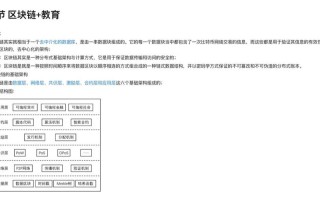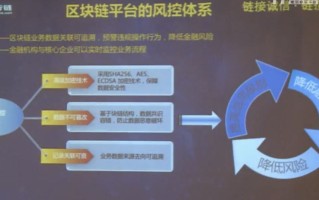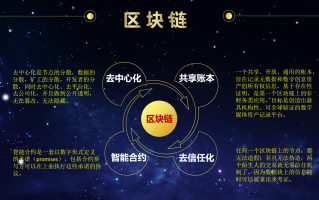Title: Exploring the Limitations of Blockchain Technology
Blockchain technology has emerged as a groundbreaking innovation with transformative potential across various industries. However, like any technological advancement, it also comes with its set of limitations and challenges. Let's delve into the constraints of blockchain technology and explore how they impact its widespread adoption and implementation.
Scalability:
One of the most significant limitations of blockchain technology is scalability. Traditional blockchain networks, such as Bitcoin and Ethereum, face challenges in handling a large number of transactions simultaneously. The decentralized nature of blockchain requires every node in the network to process and validate each transaction, leading to slower transaction times and higher costs as the network grows. As a result, scalability remains a pressing issue, hindering blockchain's ability to compete with traditional payment systems like Visa or Mastercard.
Energy Consumption:
Another concern associated with blockchain technology is its significant energy consumption, particularly in proofofwork (PoW) consensus mechanisms. PoW requires miners to solve complex mathematical puzzles to validate transactions and secure the network. This process demands substantial computational power, leading to high energy consumption. The environmental impact of blockchain mining, especially Bitcoin mining, has raised criticism regarding its sustainability. As society becomes increasingly conscious of climate change and environmental sustainability, addressing the energy consumption of blockchain networks becomes imperative.
Interoperability:
Interoperability refers to the ability of different blockchain networks to communicate and interact seamlessly with each other. Currently, the blockchain ecosystem comprises numerous independent networks, each with its protocols, standards, and consensus mechanisms. This lack of interoperability hampers the efficient transfer of assets and data between different blockchains, limiting their utility. Overcoming interoperability challenges is crucial for realizing the full potential of blockchain technology in facilitating global transactions and fostering collaboration across industries.
Regulatory Uncertainty:
The regulatory landscape surrounding blockchain technology remains uncertain and fragmented in many jurisdictions worldwide. Governments and regulatory bodies are still grappling with how to classify and regulate cryptocurrencies and blockchainbased assets. Regulatory ambiguity creates barriers to adoption, as businesses and investors hesitate to fully commit to blockchain initiatives due to potential legal and compliance risks. Clear and consistent regulatory frameworks are necessary to provide the confidence and stability needed for blockchain technology to thrive and achieve mainstream acceptance.
Privacy and Security:
While blockchain technology offers transparency and immutability, ensuring privacy and security remains a challenge. Public blockchains store all transaction data on a distributed ledger, making it visible to anyone on the network. While this transparency is beneficial for trust and accountability, it raises concerns about data privacy, especially for sensitive information. Additionally, blockchain networks are not immune to security threats, such as 51% attacks, smart contract vulnerabilities, and hacking incidents. Enhancing privacy features and implementing robust security measures are essential for addressing these concerns and fostering trust in blockchain applications.
User Experience:
The user experience of interacting with blockchainbased applications often lags behind traditional systems in terms of simplicity and convenience. Cryptocurrency wallets, for example, can be complex and intimidating for nontechnical users, leading to adoption barriers. Moreover, the irreversible nature of blockchain transactions means that users must exercise caution to avoid irreversible mistakes. Improving the user interface and experience of blockchain applications is crucial for attracting mainstream users and driving widespread adoption.
Conclusion:

While blockchain technology holds immense promise for revolutionizing various industries, it is not without its limitations. Scalability, energy consumption, interoperability, regulatory uncertainty, privacy, security, and user experience are among the key challenges that must be addressed to unlock blockchain's full potential. Collaborative efforts from industry stakeholders, governments, and regulatory bodies are essential to overcome these limitations and foster the mainstream adoption of blockchain technology.
As the blockchain ecosystem continues to evolve, addressing these limitations will be paramount in realizing its transformative impact on society and the global economy. Only through concerted efforts to innovate, collaborate, and adapt can we harness the true power of blockchain technology for the benefit of all.
标签: 区块链怎么赚钱 区块链交易平台 区块链应用 区块链的概念







